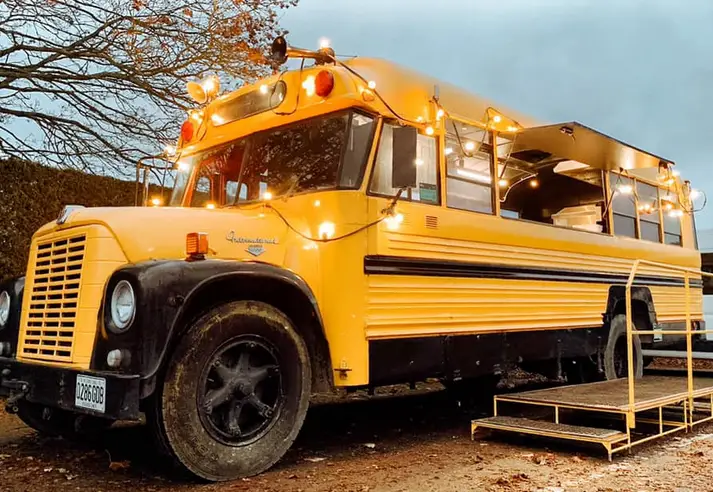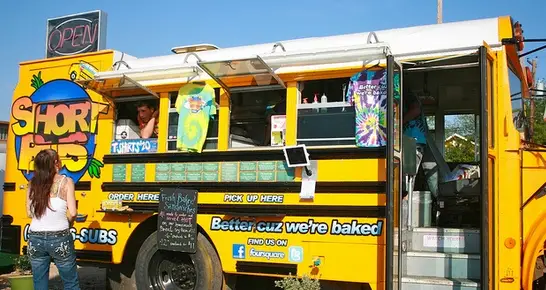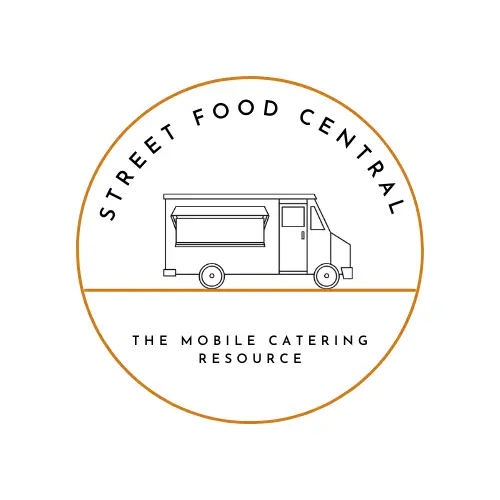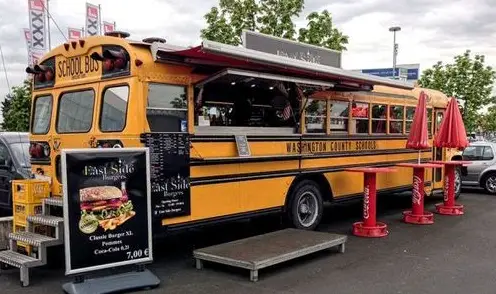The food truck industry has seen a fascinating evolution with the emergence of “skoolies” – converted school buses serving as mobile eateries.
As you will likely already know, many people convert old school buses into all sorts of things, including places to live. This article delves into what sets these unique food trucks apart from their conventional counterparts, examining aspects like size, effectiveness, licensing requirements, and conversion costs.
I. The Concept of Skoolie Food Trucks:
A “skoolie” food truck is essentially a decommissioned school bus that has been transformed into a mobile kitchen. Unlike typical food trucks, which are often built on cargo or panel van platforms, skoolies offer something far more spacious. Originating as a creative and cost-effective solution, these converted buses have gained popularity for their novelty and comparatively large interiors.
II. Size and Space Dynamics:
Physical Dimensions: Skoolie food trucks typically offer more interior space compared to standard food trucks. The average school bus can range from 20 to 40 feet in length, providing ample room for kitchen equipment and customer service areas.
Interior Space Utilization: This increased space allows for a more extensive kitchen setup and the possibility to host a small number of dine-in customers, something rarely feasible in a traditional food truck.
Pros and Cons: The primary advantage of a skoolie is this additional space. However, their larger size can be a drawback, making it difficult to navigate narrow city streets and find suitable parking spots. As a result of this, skoolies are not quite as mobile when compared to other food trucks.

III. Effectiveness as a Food Service Vehicle:
Operational Advantages: Skoolies often become a center of attraction due to their unique and customizable exteriors. This can be a significant marketing tool, drawing in customers intrigued by the novelty. They can also host far more staff than a traditional food truck as there is enough space for a completely separate space for serving and cooking.
Customer Experience: The distinctive, often retro look of a skoolie offers a memorable customer experience, potentially enhancing customer loyalty.
Limitations: Skoolies may face operational limitations in urban areas due to their size. They cannot simply park somewhere and set up and need a lot of pre-planning. Their older engines might not be as reliable or fuel-efficient as newer food trucks and will need more maintenance.
IV. Licensing and Legal Requirements:
Operating a skoolie food truck may require a different set of licenses compared to traditional food trucks, especially if the vehicle’s weight exceeds certain limits.
However, for the most part, a Commercial Drivers License is not needed for a skoolie unless you are driving around people for your job (carrying 15 people or more).
Additionally, skoolie owners must ensure their vehicles meet all local food service and safety regulations the same as any other food truck owner would.

V. Conversion and Maintenance Costs:
Conversion Costs: Converting a school bus into a food truck can be a costly endeavor, often ranging from $20,000 to $60,000, depending on the level of customization and quality of kitchen equipment installed. This may not sound like a lot of money considering the size of the vehicle, but remember, these buses will have at least 150k miles on the clock when you first convert them.
Maintenance Expenses: Skoolies, especially older models, may incur higher maintenance costs due to their age and size. Regular upkeep is essential to ensure reliability and safety.
VI. Why Choose a Skoolie Over a Regular Food Truck?
Skoolies appeal to entrepreneurs looking for a mobile kitchen that stands out. Their size allows for creative interior layouts and customization that can align with a specific brand or theme. Furthermore, they can hold a lot more staff and equipment, so are best suited to large-scale food enterprises than a single owner-operator.
Skoolie food trucks represent a unique blend of creativity, functionality, and entrepreneurial spirit in the evolving landscape of mobile food trucks.

